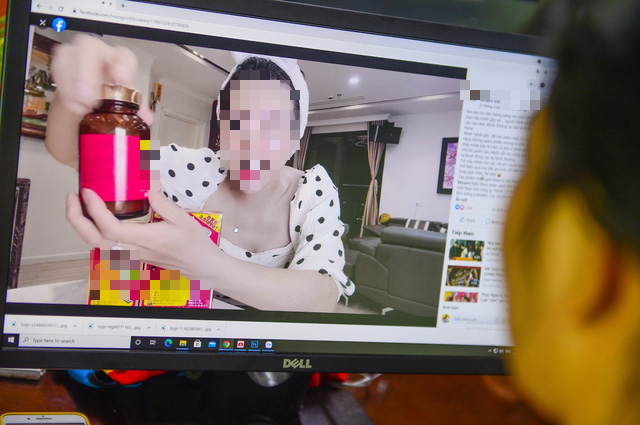Many celebrities actually do not use the products they advertise in real life

The influencer marketing field is growing out of control in Vietnam as many companies and influencers have fooled consumers to make money from poor quality products.
A case in which several Vietnamese celebrities posted advertising contents for a cryptocurrency allegedly associated with a scam organization early this week has set the latest example of dishonest influencer marketing in the country.
Influencers have often received offers to advertise cryptocurrencies since long ago, according to Huyen Tran, CEO of Skypery Media Company and manager of a number of key opinion leaders (KOLs) and influencers.
“It is difficult to find out the persons behind those offers, maybe they are from advertising agencies or some freelancers,” Tran said.
“We still receive such offers every day,” she added.
Tran shared that her KOLs and influencers had been invited to promote that type of cryptocurrency since mid-April.
Having knowledge of cryptocurrencies and seeing that these virtual tokens do not have a clear origin, Tran refused to make a deal.
“Whether it’s junk coin or not, even if it’s Bitcoin, influencer managers always have to check the information carefully before accepting the offers,” she said from her experience, referring to the legitimacy and trustworthiness of different cryptocurrencies on the market.
Beside cryptocurrencies, cosmetics and functional foods of unknown origin are popular items that influencers have deceitfully advertised to earn money in Vietnam.
“Celebrities and influencers all have social influence, so when they advertise for poor quality products and services, a part of consumers will believe them and rush to buy or use those things, which affect their health and life and waste their money,” said Do Tuan Hai, CEO of The A List, which manages a network of many well-known KOLs in Vietnam.
“This can lead to consumers and communities gradually losing trust in the influencers’ reviews or comments.”
According to director of a pharmaceutical enterprise, many celebrities actually do not use the products they advertise in real life.
“It’s totally lawful to review a product, but how can someone give reliable reviews without using and experience the products by themselves?” the director criticized.
CEO Hai believes it is the responsibilities of the influencer managers to scrutinize the companies giving the advertising offers and their product quality and origin.
However, CEO Tran said few influencers and managers take those responsibilities seriously.
Influencers often receive remuneration through private negotiations, without legal obligations and personal income tax payments, according to Tran.
“In cases of cosmetics, there is neither requirement to check the origin of the items nor responsibility terms in the contract between the two parties,” she said.
“This has been the case for a long time, nothing new.”
According to Hai, Vietnamese law has yet to catch up with the fast growth of the influencer marketing industry.
“The solution now relies on the press, which should actively report on this issue to raise consumers’ awareness, while the legal system must be improved with stricter regulations,” Hai said.







